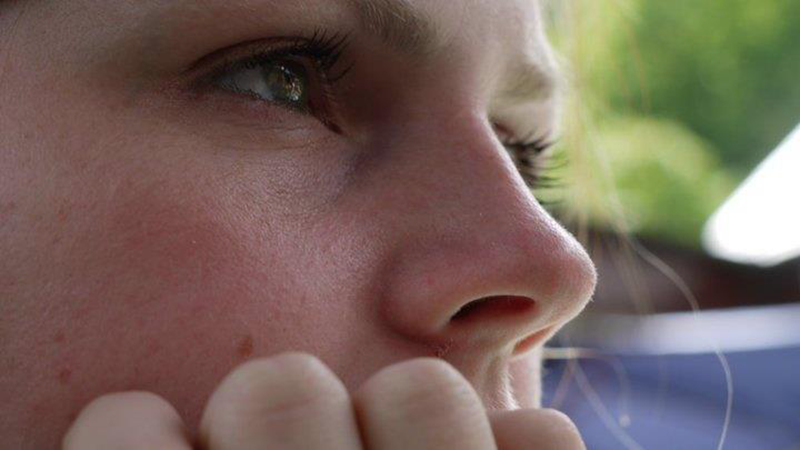*This blog contains descriptions of an eating disorder that some readers may find triggering
As a professional figure skater, people see you as an Ice Princess in glamorous shows, wearing sparkly dresses while being applauded by amazed audiences. That is the case, for about 1% of your career. What people don’t see is the decades of incredibly hard work, discipline, sacrifices, setbacks, injuries, tears and struggles with mental health. I am so unbelievably happy and grateful for how far I have come. Making a living as a professional figure skater and being able to inspire people with my passion is a dream come true. However, I had to make many sacrifices along the way. Huge sacrifices.
My parents could never afford for me to take skating lessons, so I had to learn a lot on my own at first. I have a huge drive to prove my worth to every person I meet and as a bit of a perfectionist, I want to be the best at everything I do. When my future coaches and the national federation saw my talent and drive, they helped me out financially, allowing me to pursue my dream of being a figure skater. I still feel incredibly lucky to have been given this opportunity.
View this post on Instagram
When I was chosen to become a pairs skater at thirteen, I remember it only taking one inappropriate comment from one of my closest friends to trigger something in me that ended up robbing many many years of my life: “Before you train with your new partner, you’d better not eat anything so you are skinny. Or if you’ve eaten already you can get it out in the bathroom. Do you know what I mean?”
Figure Skaters are expected to be in excellent shape at all times. These expectations are especially high as a pairs skater where you not only have to look super fit in your tiny costumes but feel additional pressure to weigh as little as possible so that it is easier for your partner to lift and throw you around. I took my friend’s comment by heart and believed that what she said was the truth. So, before my first lifting session, I took my friends advice, went to the bathroom and forced my lunch back up.
I still remember how easy I found it, easier than saying no to chocolate. I had no clue that it would be the start of the vicious circle that stole not only my competitive skating career but all of the happiness and beauty of my teenage years. For a while, I was happy. My new method of losing weight worked and I was praised for being a natural talent and a light of hope in pairs skating for Germany!
However, it did not take long until the negative sides began to appear. The more I thought about quitting my method of binging and puking, the more I became addicted to it. Eventually, all I could think about was my eating habits – what to eat next? Where and how fast could I get rid of it without anybody noticing? How could I achieve eating nothing for a couple of days to give my sore throat a rest? Could I create a super restrictive eating plan for when I don’t puke anymore.
Unfortunately, my coaches’ comments and actions did not help either. You would think that bulimia would make you super skinny but for me, it did not. I became even more frustrated when I started to gain weight even though I was either not eating at all or I was binging and getting rid of it immediately. I just didn’t understand how I was still gaining weight. Even though I was just 13, growing in height and was just about to enter puberty, my coaches would set up weighing sessions every week. They even made me travel two hours to the training rink on my days off, just so they could weigh me and show me that I was too fat by pointing at the numbers on the scale.
Whenever my coaches caught me eating, even if was just a carrot, their looks and comments would kill me inside. They would say things like “Stop eating, you are too fat”. Nobody would have ever known how the pressure was getting to me as I was doing everything I could to hide every hint of vulnerability or weakness. I wanted everybody to believe I could handle any kind of pressure thrown at me and excel no matter what. I was strong on the outside but broken on the inside.
For years, I was stuck in that vicious circle until all the frustration and pressure that had been building up inside me reached its limit. Depression kicked in and I couldn’t handle it all by myself anymore. I tried to seek help but I was too embarrassed to tell anybody what had been happening. It became clear that the only way out was to seek professional help.
View this post on Instagram
When I began to recover, I rediscovered my passion for figure skating. By choosing to focus on my love for the sport, I became more successful in my show skating career.
Even though I had finally found my confidence again, I failed to open up about this topic until only the beginning of this year. For a long time I haven’t been able to talk about my struggles without immediately bursting into tears. I never thought it was necessary to point out my weaker side but now I realise that it is. I believe that by opening up and being able to tell my story after a decade of silence is a huge part of my progress.
If there had been one person I knew of who had the same, or similar, struggles that did, I believe I would have been able to handle the situation better. I wouldn’t have been so ashamed, thinking I was the only one. If you are struggling, know that you are not alone! You do not have to handle all this on your own!
If there are people in your life who you trust, talk to them. If you feel like you don’t have anyone you can talk to, please find professional help as soon as possible.
Realising, admitting, and talking about it is the first and most important step to recovery. You are not alone.



